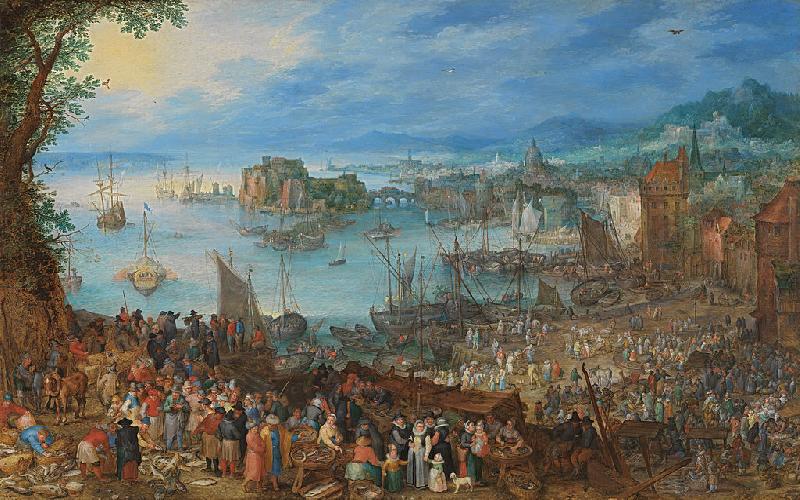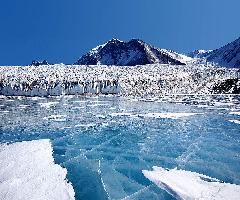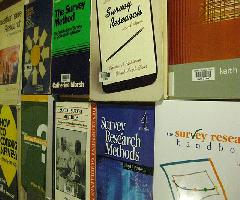Business: What it Means
The word 'business' can potentially include almost all economic activities undertaken by humans, but it may be more prudent to confine the term to activities that involved production or exchange of articles or goods. The history of business, like the history of economic activities, can be most easily divided into three phases - business in pre-industrialised world, business during the industrialisation, and finally business in the networked world.
Business in Pre-Industrialised World
The primary economic activity prior to industrialisation, across the globe was agriculture. However, even during those times, there were substantial non-agricultural activities in the form of trade,
handicrafts, rural and household industries etc. Trade began as barter between individuals and households, but gradually grew in an organised form, and spread even across countries and continents. Evidences of local as well as international trading are found in all major ancient civilizations including Egypt, China, India and Rome. It involved precious metals, spices, jewels, art pieces and dry fruits.In the earlier times, manufacturing took place at different levels. In the rural agglomeration, it consisted of weaving, metal crafts and wood based manufactures. In the more urbanized centres, trading activities dominated. Even in those times, there were a class of people who specialised in these activities only. Specialised trading classes began to thrive in all civilisations of the time. In India, the trader-business class were called "Vaishya" and were one of the four castes of the society, a division that persists to some extent even today.
By third century B.C., international trade had spread across Asia and Europe. Traders used to cross countries across vast distances and products were exchanged. During this period there were major empires across different regions, in Persia, Europe, China and India. The existence of large empires helped trade to prosper.
Business during Industrialisation
Business got a new meaning with the advent of machines. Till then, the factors of production were land and labour, both of which were limited. Machines introduced technology, which multiplied the efficiency of labour and allowed for surplus production, far beyond the consumption capacity of the producer. This capacity of surplus production created the incentive for trade and in turn created the modern markets.
Till the advent of industrial age, a family or a village was mostly self sufficient. They produced what they required and consumed what they could produce. With machines, the production capacity began to exceed their capacity to consume. From sixteenth century onwards, there was a dramatic surge in scientific developments. Perhaps the most important was the printing machine which allowed the knowledge to spread across Europe, and changed the way man behaved forever. It brought in other changes too, and ushered a new era that began with the renaissance of Europe, and later spread to the rest of the world.
The surplus production also gave rise to the need of finding new trading routes and markets. European sailors began to attempt historical journeys to find new ground. One such journey by Christopher Columbus who went in search of a sea route to the East, ended in the discovery of the new world that later came to be called America. For around two centuries, from 1602 A.D. onwards, the Dutch East India Company enjoyed dominance over these routes, becoming the first giant multinational corporation, till it was replaced by the British East India Company. Colonisation of Asian countries based on the power of gunpowder and industrial wealth was actually a by-product of international trade which these trading companies had come to dominate across the world.
In the nineteenth century, business and trade reached unprecedented levels, and began to take the centre stage of human social
The business efficiency of certain countries in this age placed them in the 'developed' category, thereby creating a North South division in the global community. In addition, it also created stakes that were worth fighting and dying for. The prosperity brought with it a new arrogance, unconcern for life, and the resulting developments ended with two bloody world wars that consumed millions across the world.
By the nineteen seventies, the destruction of wars was forgotten. However, industrialisation created a huge premium for energy, and the resultant petrol price escalation brought in oil shocks that changed the world in many ways. The relationship between the global currencies was changed with the introduction of floating currencies. Petrodollars made gulf kingdoms billionaires, and some of them began to see themselves as modern Caliphs. With overflowing pockets, they began to nurture plans of a pan-Islamic world, and while the two superpower blocks struggled to maintain their balance in the cold war, a new monster was born in the form of Islamic terrorism that is still a nuisance for the civilized world.
eCommerce: Business in the Era of Internet
Till the advent of modern computers and internet, business primarily referred to goods, manufacturing and trade. Even though there had been companies providing some services, they were never in the centre stage. The advent of World Wide Web changed everything. With production of goods becoming cheaper, it was only a matter of time before services became the more important article of trade.
Labour had always been far less mobile than goods. However, with the advent of internet, it became possible for companies to use the labour of a person sitting far away in another city or country. Software industry became the toast of business community. All businesses - manufacturing as well as trade- began depending on computers, software and internet for their efficiency and next stage of evolution. The meaning of business got changed forever.
While this was happening, other major developments were also taking place. Medical and health services began to experience huge cost escalations, particularly in United States. Bioresearch, Genetics and Pharmaceuticals grew in value. Simultaneously, the phenomenon of e-commerce evolved making the political boundaries somewhat less important. Probably the biggest revolution during the last three decades was communication, connecting the globe as had never happened before, and in the process becoming one of the major businesses itself.
The evolution of business continues, while the world becomes more connected as well as more complicated. As one can see, the history of business cannot be separated from the history of man. Both are inseparably linked to the other.










